Are you looking for a way to communicate important information regarding oncology treatment? Crafting a clear and compassionate letter is essential, whether you're a healthcare professional reaching out to a patient or a loved one offering support. In this article, we'll explore effective ways to structure your letter, ensuring it conveys the necessary details while maintaining an empathetic tone. Read on to discover helpful tips and a template to guide you through this important task.
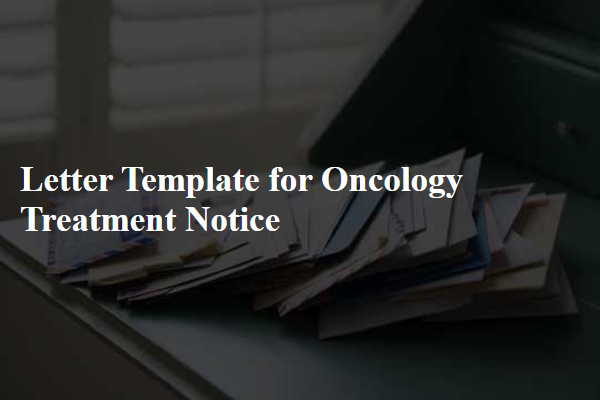
Patient Information
Patient information regarding oncology treatment is critical for managing individual health needs effectively. Oncology (the branch of medicine that pertains to the diagnosis and treatment of cancer) treatments often involve chemotherapy (a type of cancer treatment using powerful drugs), radiation therapy (the use of high-energy particles or waves to destroy or damage cancer cells), and supportive care measures. Patients may require continuous monitoring in specialized oncology units (hospitals or clinics focused on cancer care) where healthcare teams manage treatment schedules, side effects, and overall patient well-being. Detailed records of patient history (including previous cancer diagnoses, family medical history, and allergies) play a significant role in tailoring the most effective treatment plans. Regular follow-ups (scheduled appointments to assess progress and adjust therapies) and patient education (providing information about treatment processes and self-care) are essential components of comprehensive oncology care.
Treatment Details
Oncology treatment notices often include critical information about the specifics of cancer therapy, such as chemotherapy or radiation therapy. The notice should outline the patient's name, diagnosis (e.g., breast cancer, stage II), treatment regimen (e.g., Taxol and Carboplatin), frequency of sessions (e.g., every three weeks for six cycles), location of treatment (e.g., City Hospital Oncology Center), and assigned healthcare providers (e.g., Dr. Smith, Medical Oncologist). It is essential to mention the start date (e.g., January 15, 2024) and any required preparations (e.g., blood tests 48 hours prior to each session). Additionally, information regarding potential side effects, supportive care resources, and contact information for questions should be included to ensure patients feel supported and informed throughout their treatment journey.
Appointment Schedule
Scheduling oncology treatment appointments is crucial for patient management in cancer care facilities. Patients diagnosed with various types of cancers, such as breast cancer or lung cancer, require regular visits to oncologists for chemotherapy sessions, radiation therapy consultations, and follow-up assessments. For instance, an appointment scheduled on November 5, 2023, at 2 PM in the oncology department at General Hospital, New York, can lead to discussions about treatment plans, medication side effects, and nutritional advice. Additionally, timely coordination with nursing staff ensures that patients receive necessary pre-treatment evaluations and post-treatment support, enhancing their overall experience in managing their condition.
Contact Information
Oncology treatment notices typically include essential contact information for medical professionals and facilities involved in patient care. This includes the name of the oncology specialist (like Dr. Jane Smith, MD), the primary hospital or clinic (for example, City General Hospital located at 123 Health Street, New York), and essential contact numbers (such as the direct office line at (555) 123-4567 or the 24-hour emergency contact at (555) 987-6543). Additionally, providing the facility's fax number (for health documents, 555-765-4321), email address (info@citygeneralhospital.com), and office hours (Monday to Friday, 8 AM to 5 PM) ensures clear communication. Including the oncology department's direct extension (such as ext. 101) can facilitate quicker communication for ongoing treatment inquiries or scheduling follow-ups.
Signature and Authorization
Oncology treatment notices play a crucial role in informing patients about their treatment plans, procedures, and necessary authorizations. An oncology clinic, renowned for advanced cancer care, often requires patients to acknowledge their understanding of treatment protocols. The signature field ensures the patient consents to the proposed treatment, which may include chemotherapy, radiation therapy, or immunotherapy, initiated by specialized oncologists. Authorization may encompass medical insurance coverage for costly procedures, safeguarding patients against unforeseen expenses. This formal acknowledgment is critical to ensure compliance with medical guidelines and to facilitate clear communication between healthcare providers, patients, and insurance companies.

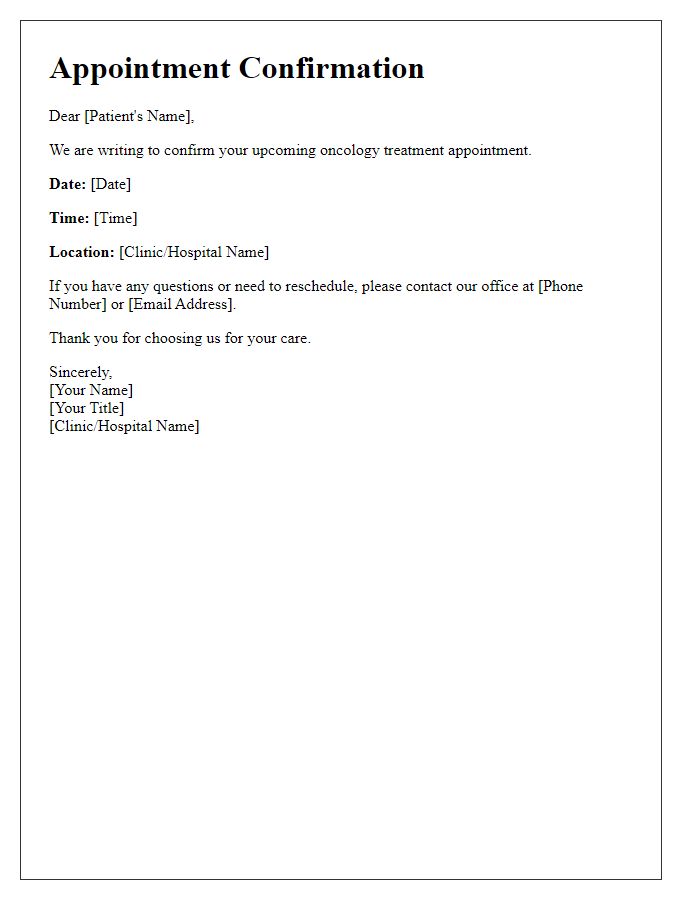
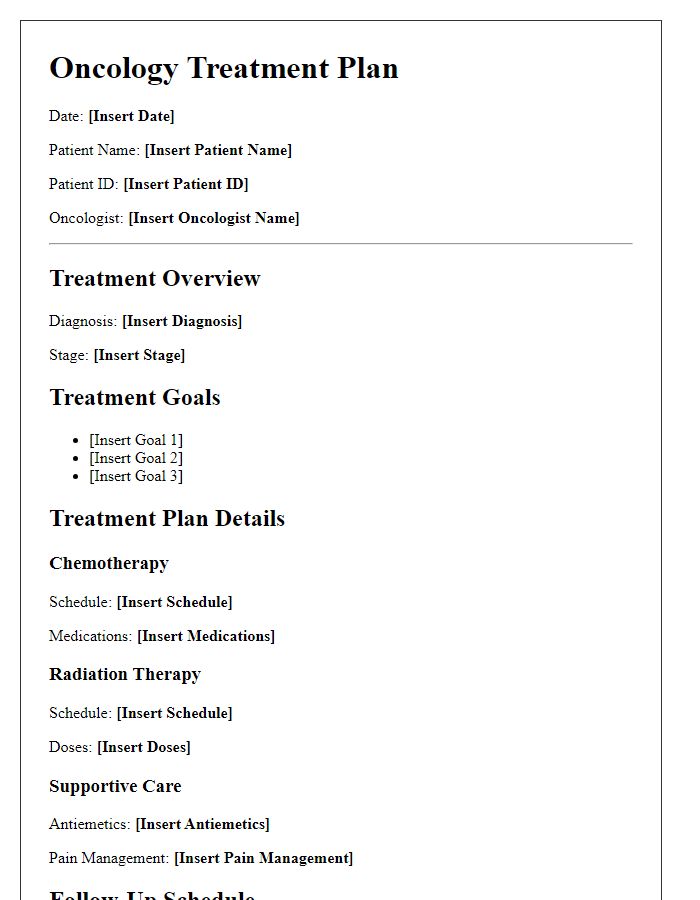
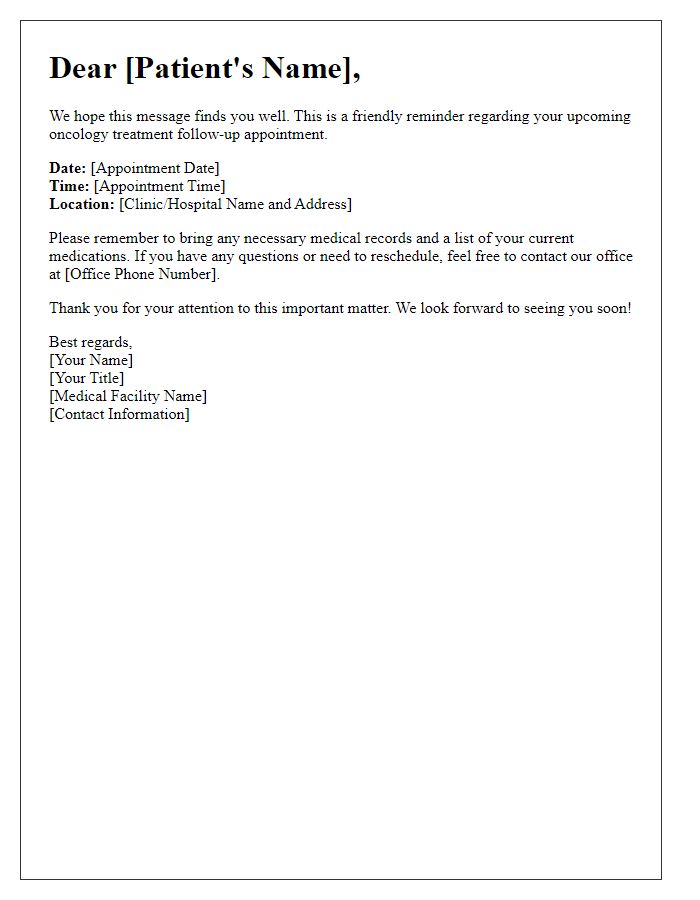
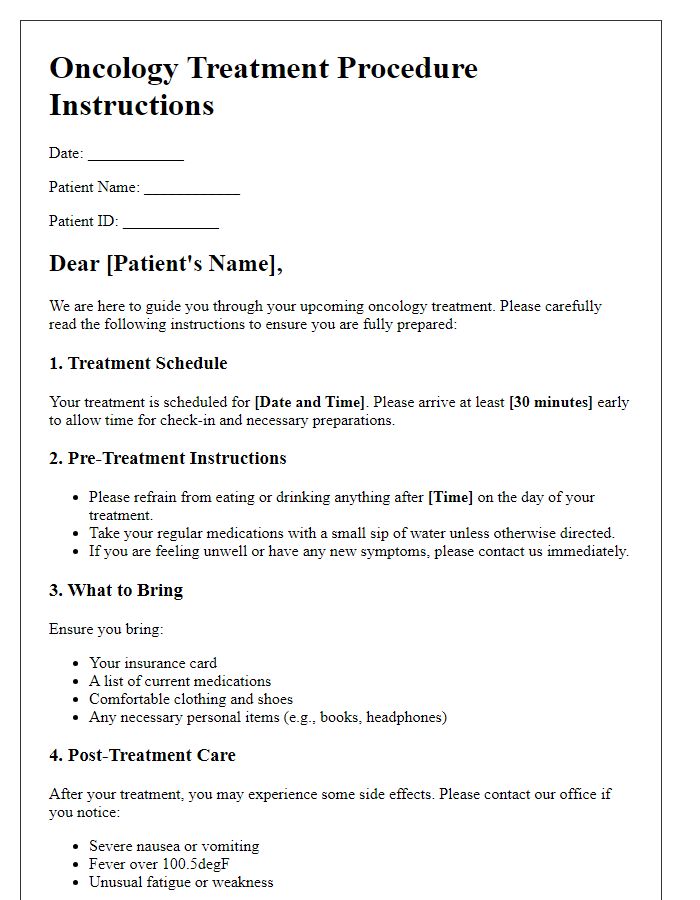
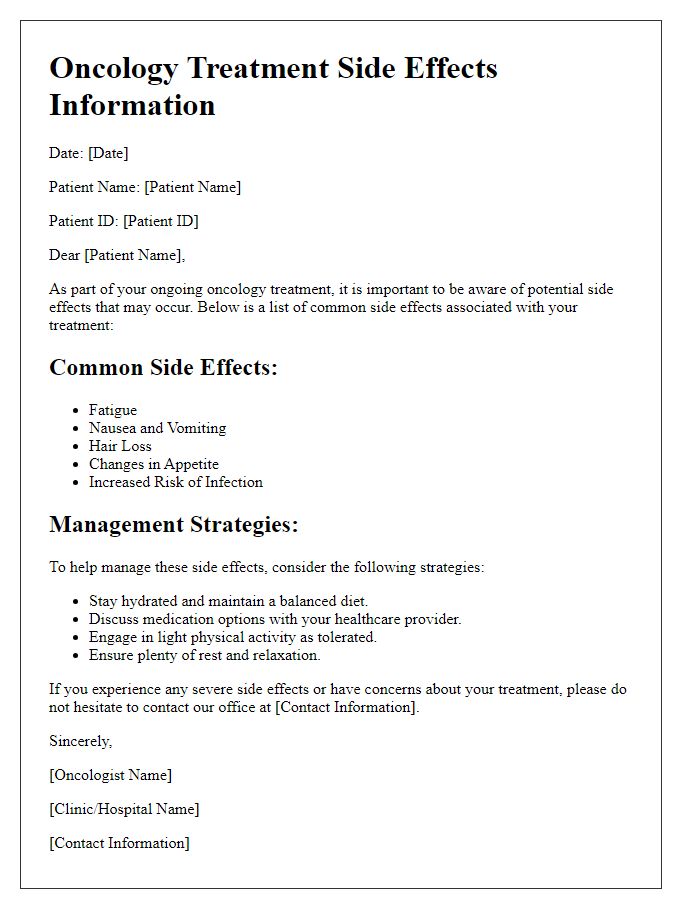
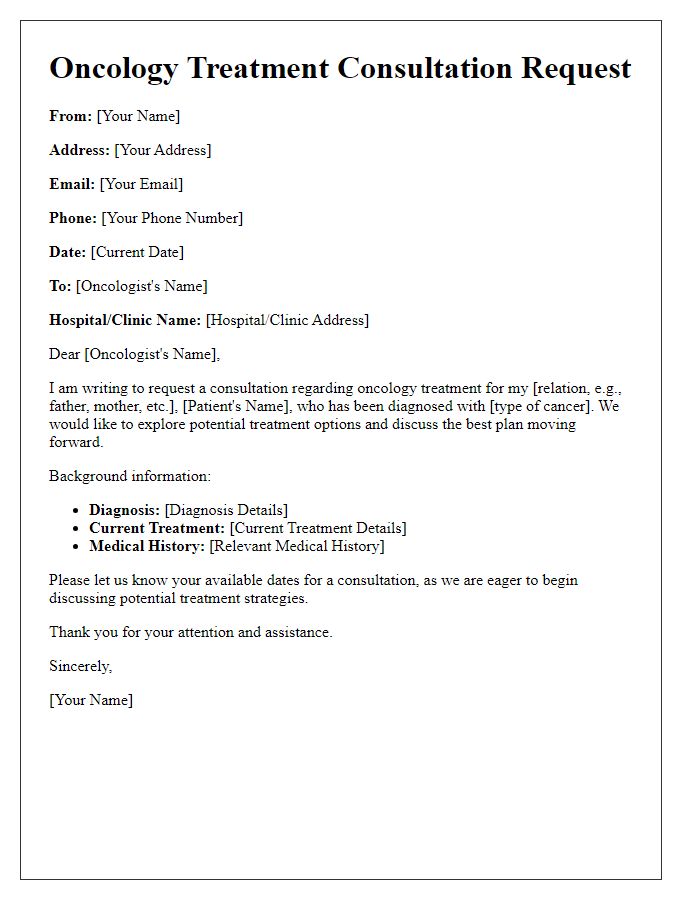
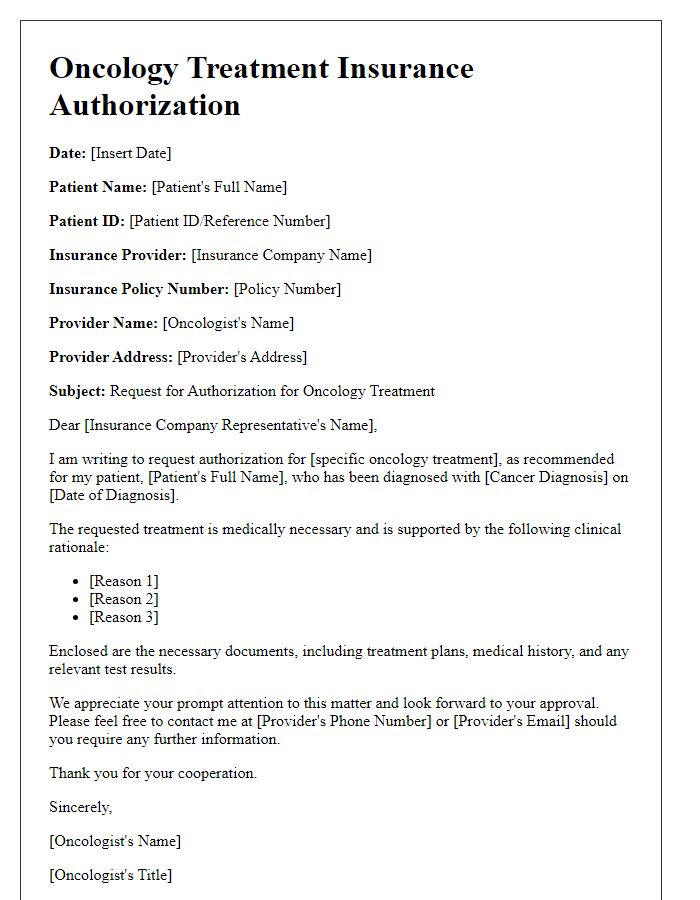
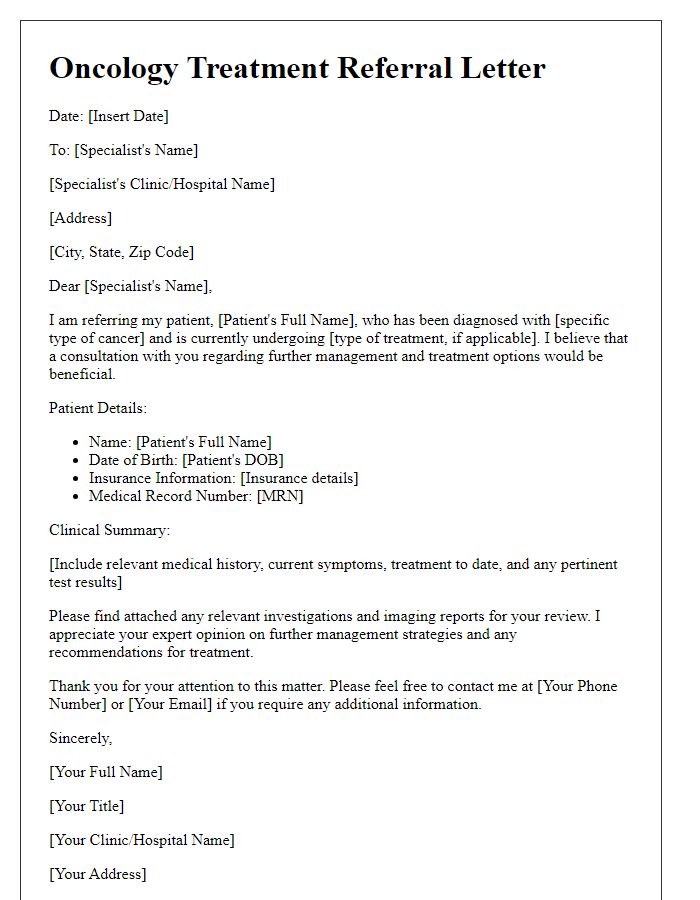
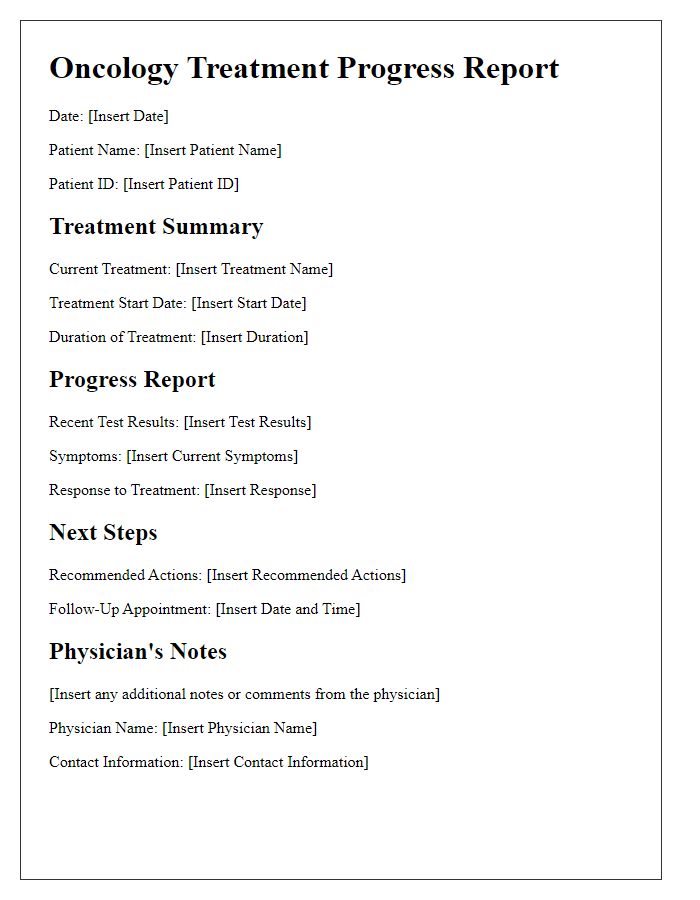
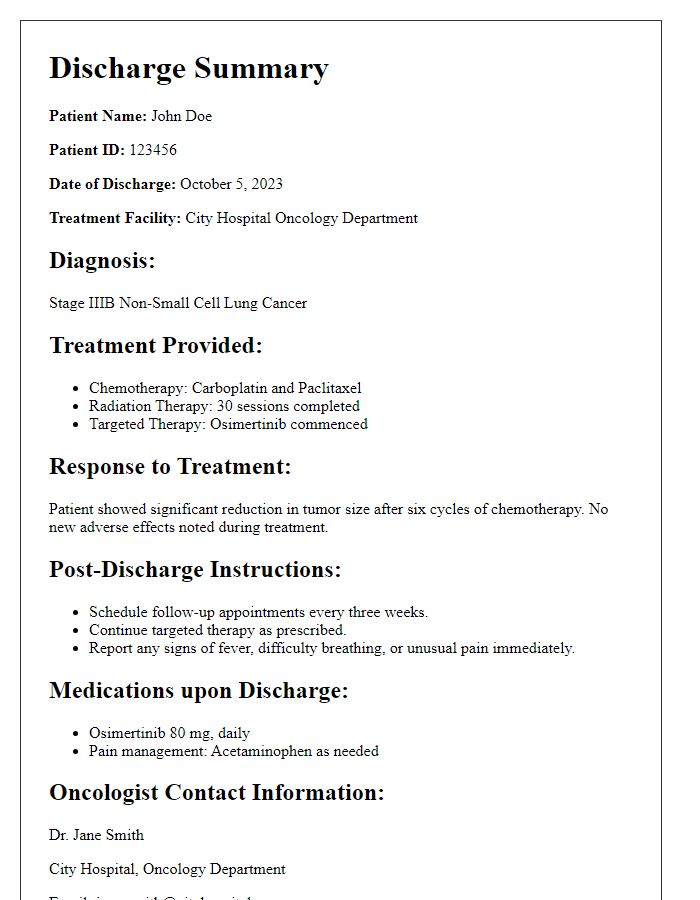

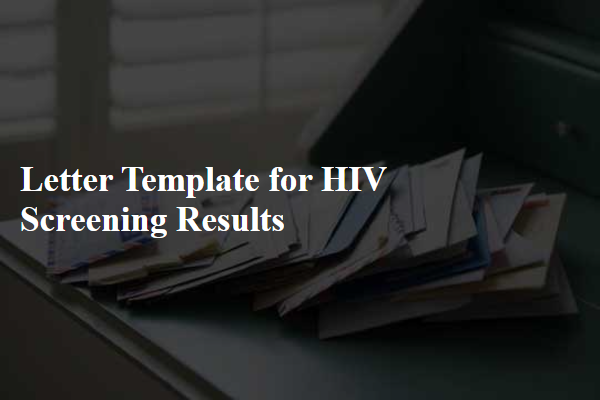
Comments